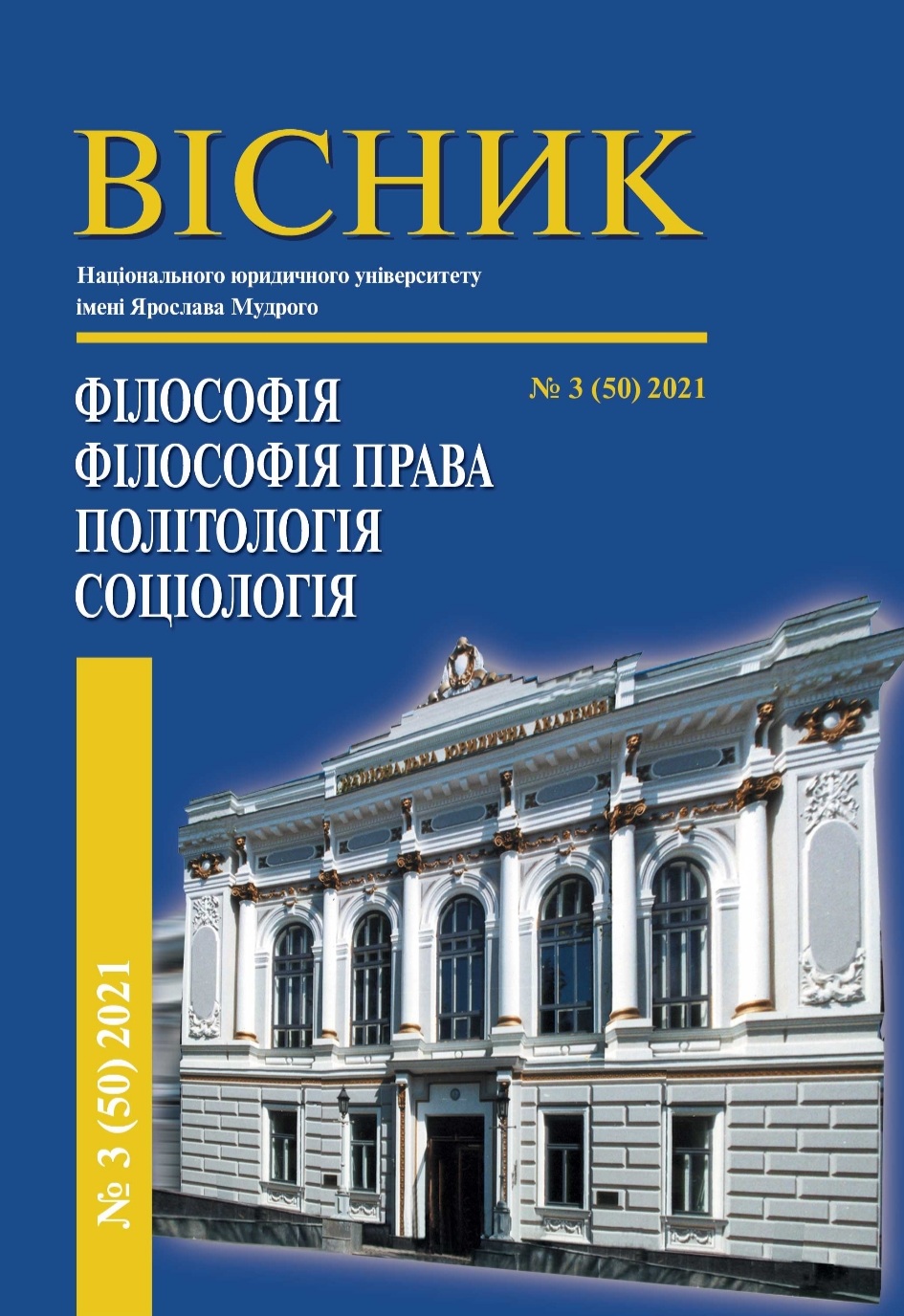ЗОВНІШНЯ ПОЛІТИКА США В ОСВІТІ ЯК ЕЛЕМЕНТ «М’ЯКОЇ СИЛИ»: РЕТРОСПЕКТИВНИЙ АСПЕКТ
DOI:
https://doi.org/10.21564/2663-5704.51.242016Ключові слова:
зовнішня освітня політика, міжнародні освітні програми, експорт освіти, «м’яка сила»Анотація
Предметом статті є освіта як складова частина зовнішньої політики США, яка використовувалася і залишається дієвим і впливовим фактором розвитку суспільства, орієнтованого на американські цінності, погляди і спосіб життя. Метою статті є аналіз місця і ролі освіти у зовнішньополітичній стратегії США в сучасну епоху, а основні завдання - визначення стратегічних напрямків використання Сполученими Штатами освіти як «м’якої сили», а також виявлення конкретних механізмів, що дозволяють досягти найбільш ефективних результатів у цьому напрямку. В рамках дослідження досягнуті такі результати: вивчено історичний контекст використання США освіти в якості інструменту «м’якої сили», проаналізовано стратегічні напрямки використання освітнього потенціалу «м’якої сили», виділені галузі освіти, на яких США фокусують основну увагу в контексті експорту освітніх послуг. Американський досвід щодо експорту освітніх послуг може бути використано для уточнення і теоретичного обґрунтування можливостей України просувати свої інтереси на міжнародній арені, використовуючи освітні можливості, які наша країна може запропонувати світові..
Посилання
Berezovska-Chmil, O.B., Chernyshova, T.O., & Kuchyn, S.P., et al. (2021). Spetsyfika rozvytku suchasnoho sotsialno-humanitarnoho seredovyshcha [The specifics of the development of the modern social and humanitarian environment]: kol. monohr. Kharkiv: SH NTM «Novyi kurs» [in Ukrainian].
Schwarzmantel, J. (2014). The Routledge Guidebook to Gramsci's Prison Notebooks. London : Routledge.
Nye, J. S. Jr. Soft Power, Hard Power and Leadership. Retrieved from https://numerons.files.wordpress.com/2012/04/soft-power-hard-power-and-leadership.pdf.
Nye, J. S. Jr., & Welch, D. A. (2017). Understanding global conflict and cooperation: an introduction to theory and history. Tenth ed. Boston : Pearson.
Maan, A., & Cheema, A. (Eds.) (2017). Soft power on hard problems: strategic influence in irregular warfare. Lanham : Hamilton Books.
Nye, J. S. Jr. (2004). Soft Power. The Means to Success in World Politics. Retrieved from https://www.international.ucla.edu/asia/article/34734
Bureau of Educational and Cultural Affairs. (2021). Retrieved from https://eca.state.gov/fulbright/fulbright-alumni
Higher education. Open Society Foundations. (2020). Retrieved from https://www.opensocietyfoundations.org/what-we-do/themes/higher-education
Frankel, Ch. (1966). Neglected Aspect of Foreign Affairs: American Educational and Cultural Policy Abroad. Washington, D. C.: The Brookings Institution.
Cox, M. (2010). Soft Power and US Foreign Policy. Theoretical, historical and contemporary Perspectives. New York : Routledge.
Belmonte, L.A. (2010). Selling the American Way: U.S. Propaganda and the Cold War. Philadelphia: University of Pennsylvania Press.
Coombs, P. H. (1965). Education and Foreign Aid. Ways to Improve United States Foreign Educational Aid. Cambridge, MA : Harvard University Press.
Nye, J. S. Jr. (1990). Bound to Lead: The Changing Nature of American Power. New York : Basic Books.
Wash, D. C. (2000). Foreign Relations of the USA. Vol. І-XVIII. 1964-1968. Retrieved from http:// https://history.state.gov/historicaldocuments/frus1964-68v18
International Military and Education Program. Defence Security Cooperation Agency. Department of Defence. (2021). Retrieved from https://www.dsca.mil/international-education-and-training.
Coombs, P. H. (1964). The Fourth Dimension of Foreign Policy: Educational and Cultural Affairs. New York : Harper & Row.
Trebin, M.P. (2015). Hlobalizatsiia vyshchoi osvity: vyklyky dlia Ukrainy [Globalization of higher education: challenges for Ukraine]. Materialy II Mizhnarodnoi naukovo-praktychnoi konferentsii «Studentska molod v umovakh hlobalizatsii» (m. Dnipropetrovsk, 24 kvitnia 2015 r.) Proceedings of the II International Scientific and Practical Conference “Student Youth in Globalization” (Dnepropetrovsk, April 24, 2015), pp. 145-151/ vidp. za vypusk profesor V.V. Kryvoshein. Dnipropetrovsk: LIRA [in Ukrainian].
Higher education in 2012: a global perspective. (2012). Retrieved from http://www.guardian.co.uk/higher-education-network/blog/2012/jan/23/internationalisation-in-2012?newsfeed=true
UNESCO Institute of Statistics. (2009). Global Education Digest: Comparing Education Statistics around the world. Retrieved from http://uis.unesco.org/sites/default/files/documents/global-education-digest-2009-comparing-education-statistics-across-the-world-en_0.pdf
Varghese, N.V. (2008). Globalization of higher education and cross-border student mobility. International Institute for Educational Planning, UNESCO. Retrieved from http://www.iiep.unesco.org/en/publication/globalization-higher-education-and-cross-border-student-mobility
Trebin, M. P., & Panfilov, O. Yu. (2021). Suchasni tendentsii zastosuvannia syly v mizhnarodnykh vidnosynakh [Modern Power Trends in International Relations]. The Bulletin of Yaroslav Mudryi National Law University. Series: philosophy, philosophy of law, political science, sociology, 2(49), 119-138 [in Ukrainian].



